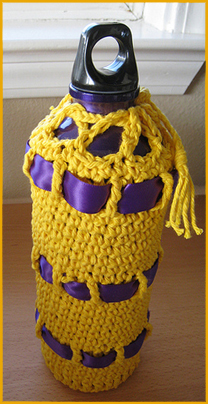
Maybe you thought that yesterday’s post, on tools for dealing with childhood obesity, was the end of covering this subject, but, no — let’s look at a few more ideas.
First, a general observation. It’s useful to bear in mind that practically everyone has unconscious, emotional, and irrational biases on the subject of obesity, in children or otherwise. Sometimes our strong feelings about the issue get in the way, and we can’t think straight. We forget that not everything in life can be legislated. Public measures can be taken, and they may or may not work, depending on your definition of “effective.”
The sad yet empowering fact of the matter is, most solutions are personal. Once a child is old enough to exercise choice about eating, any real change will have to come from within. In which case, the most any institution can do is hold classes and teach techniques.
In a widely syndicated article, Reuters Health and Science Editor Maggie Fox reported on a Columbia University study, which had inspired Dr. Claire Wang to call drinking water a “key strategy.” It was found that the average American child or teen drinks 235 “empty” calories per day. (For comparison purposes, it would take about 15 minutes of jogging to burn off that much.) Kids who have participated in the study drank plain water in place of their customary fizzy drinks. Here’s the beauty part. Fox says,
When these drinks are cut out, the average child does not make up for them by eating or drinking more calories elsewhere.
Another study conducted in the Netherlands has found that the elimination of sugary drinks is an easier approach to weight loss than either exercise or giving up snacks. The 1,108 children studied there, who had substituted water for soft drinks, didn’t change their other habits, yet they’ve lost weight. The research team recommends the reduction of sugary beverages alone as a “good behavioral target.”
This doesn’t mean we have to rush out and buy a crate of fancy bottled water. Besides, with commercial bottled water, we might want to look at the environmental implications, as well as what the bottle is made of, and whether the advertising claims have any validity. It’s possible to get a nice portable bottle that only needs to be bought once. Whatever the kids usually drink, tap water — straight or filtered — is fine. A child of a certain age might dig having a military-style canteen to carry around and drink from frequently.
In Overweight: What Kids Say, we find some creative strategies successfully used by teenagers. Marie, age 13, who decided to quit junk food and soda pop, advises a closed-door policy. Just don’t open the refrigerator or cabinet door, because if you don’t see it, you won’t eat it. Whatever unhealthful snack you intend to eat next, 12-year-old Hannah suggests imagining that it is glued onto your butt.
Brian, 15, suggests taking pictures and putting them up as reminders, “anywhere you think laziness and junk food might take place.” It’s not clear whether he means pictures of oneself at one’s heaviest, or pictures of the ideal physique that one aspires to. Probably either approach could work, if the intention is there.
A 17-year-old girl suggests counter-conditioning, or homegrown aversion therapy. For instance, eating a thick burger “while staring at a picture of a dirty toilet or having fried chicken while looking at cockroaches.” She has lost 30 pounds. (See Slide 58 in Dr. Pretlow’s presentation, “What’s Really Causing the Childhood Obesity Epidemic? What Kids Say.”)
The idea of never having a cupcake again is just unbearable, but to exist for five minutes without a cupcake — that is doable. Try waiting five minutes. Try a distracting activity. Dr. Pretlow says,
The kids learn to go about their lives ignoring the urges, even though they will never totally go away. The more they can ignore the urges, the less the urges grate on them. They read a book, work on a hobby, or shoot hoops to distract from the urges. Just relaxing also helps.
Everybody has perspective-skewing issues around obesity, and that includes you and me. A man told me this story once:
When I was little, my older brother and my cousin were the golden boys. In my dad’s eyes, they could do no wrong. They had my dad and each other, and I got left out, treated like a foster child. Well, my cousin and my brother were both big, hefty fellows. In fact, they were fat. Guess what I grew up to be? Got it in one — fat.
Your responses and feedback are welcome!
Source: “One easy remedy for overweight kids — water,” Reuters, 04/06/09
Source: “Overweight: What Kids Say,” Amazon.com
Source: “What’s Really Causing the Childhood Obesity Epidemic? What Kids Say,” Weigh2Rock.com
Image by dvortygirl, used under its Creative Commons license.

 FAQs and Media Requests:
FAQs and Media Requests: 












4 Responses
Adolescent obesity causes a series of health problems. I like the idea of having a constant reminder of what all the not so healthy foods could do to your insides in the long run. That would be a mental jerk.